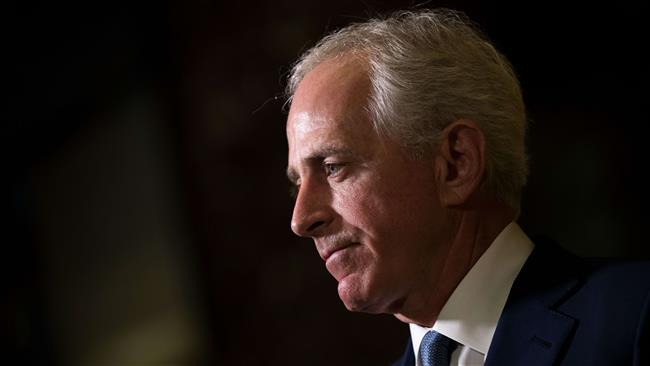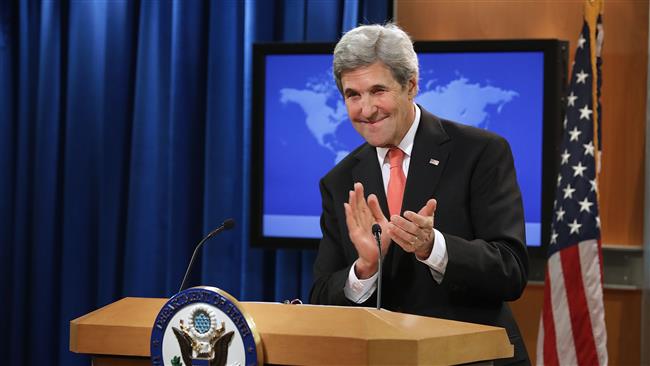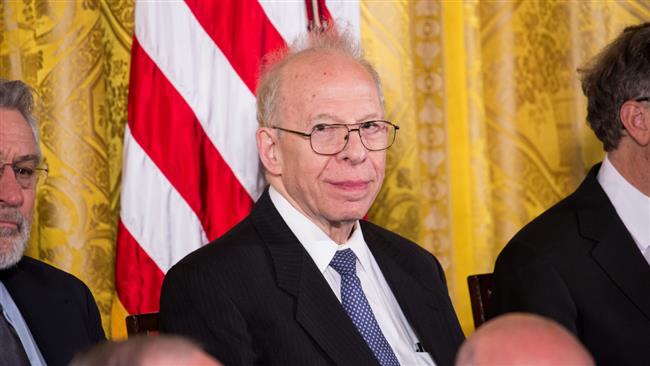Iran deal will not be cancelled under Trump: Senator Corker
The head of the US Senate Foreign Relations Committee has warned that the United States could trigger a crisis if it pulled out of the nuclear deal with Iran.
Republican Senator Bob Corker said on Friday that Washington will not “tear up” the 2015 deal with Tehran after US President-elect Donald Trump assumes office on January 20, but rather will focus on the serious implementation of the agreement.
“In spite of all the flaws in the agreement, nothing bad is going to happen relative to nuclear development in Iran in the next few years. It’s just not,” Corker said.
“You’ve got a choice. You can come in and figuratively tear it up ... and you can create a crisis on the front end by doing so. Or you can understand that we have lots of challenges to deal with around the world,” he continued.
“What you can do instead is to begin to radically ensure its being implemented properly,” Corker noted.
The US senator has already been criticized by hardline Republican opponents of the deal for failing to repeal it in the Senate in 2015.
On Tuesday, 37 top US scientists, including some of the world’s leading experts in the fields of nuclear science, wrote to the president-elect, calling on Trump to abide by the nuclear agreement with Iran when taking office on January 20.
The signatories of the letter underscored that Iran has remained fully committed to its obligations under the deal, including the cessation of enrichment activities and the export of enriched uranium, and concluded that the country would now need “many months” instead of “just a few weeks” to enrich uranium to produce weapons.
Iran and the P5+1 group – the US, Britain, France, China, Russia and Germany – reached the agreement, known as the Joint Comprehensive Plan of Action (JCPOA), in July 2015.
Iran has all along highlighted the peaceful nature of its nuclear program, saying it has never had any intention to use it for military purposes. Also, Iran says it is forbidden to use weapons of mass destruction from a religious standpoint, as highlighted on many occasions by the country’s spiritual leaders.
Under the deal, Tehran agreed to limit some aspects of its nuclear program in exchange for the removal of all nuclear-related sanctions.
But during his campaign prior to the November 8 presidential election, Trump promised to annul the deal.
He called the pact a "disaster" and "the worst deal ever negotiated." He also said that the agreement could lead to a "nuclear holocaust."
The United States, Israel, and some of their allies accuse Iran of pursuing military objectives in its nuclear program.
Iran rejects the allegation, arguing that as a committed signatory to the nuclear Non-Proliferation Treaty (NPT) and a member of the International Atomic Energy Agency (IAEA), it has the right to use nuclear technology for peaceful purposes.
Iran’s economy grew 2.7% y/y in Sep quarter: CBI
VIDEO | Freelancers in Gaza strive to stay online amid genocide
Mikati demands Israel's withdrawal from south Lebanon
Yemeni army strikes Israeli military sites with drones
‘Clock ticking’: UNRWA slams unjustifiable killing of children in Gaza
BP to be sued in Britain for supplying oil to Israel
VIDEO | Press TV's news headlines
Israeli strikes on north Gaza hospital ‘extremely dangerous, terrifying’: Director
















 This makes it easy to access the Press TV website
This makes it easy to access the Press TV website